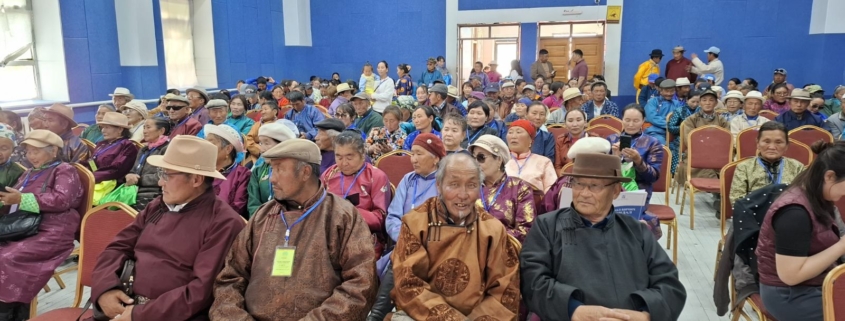ASDIP Project to Be Implemented in 34 Soums of Three Western Provinces
The Aimags and Soums Green Regional Development Investment Program (ASDIP) will be implemented over a 10-year period in 76 soums across 17 aimags of Mongolia in three phases. In its first phase, the project covers 34 soums in the western provinces of Bayan-Ulgii, Uvs, and Khovd, where the ASDIP project team is currently working on the ground.
The central project implementation unit team, including B.Vanchindorj (Deputy Coordinator for Livestock and Rangeland Management), M.Galbadrakh (Livestock and Agro-Business Specialist), N.Oyunsuvd (Agronomist), A.Altanzul (Herders Organization and Certification Specialist), P.Naranbaatar (Rangeland Specialist), Ch.Belegsaikhan (Resettlement Specialist), and Yo.Lkhagvadorj (Urban Development Specialist), along with relevant local implementation unit experts from the three aimags, are conducting field visits in over 10 target soums.
During the field mission, the team is meeting with provincial and soum-level officials, herders, and local communities to introduce the project, discuss upcoming activities, and promote collaborative implementation. The discussions also aim to identify and prioritize existing challenges at the local level.
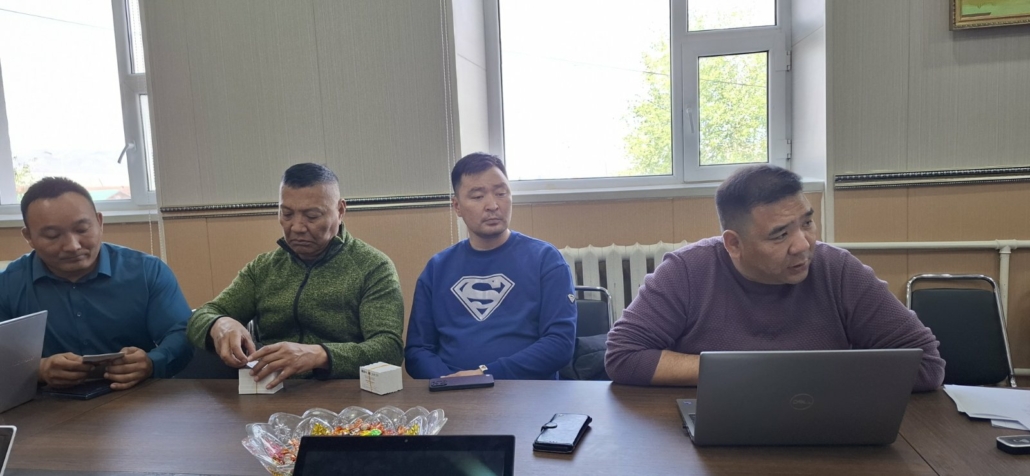
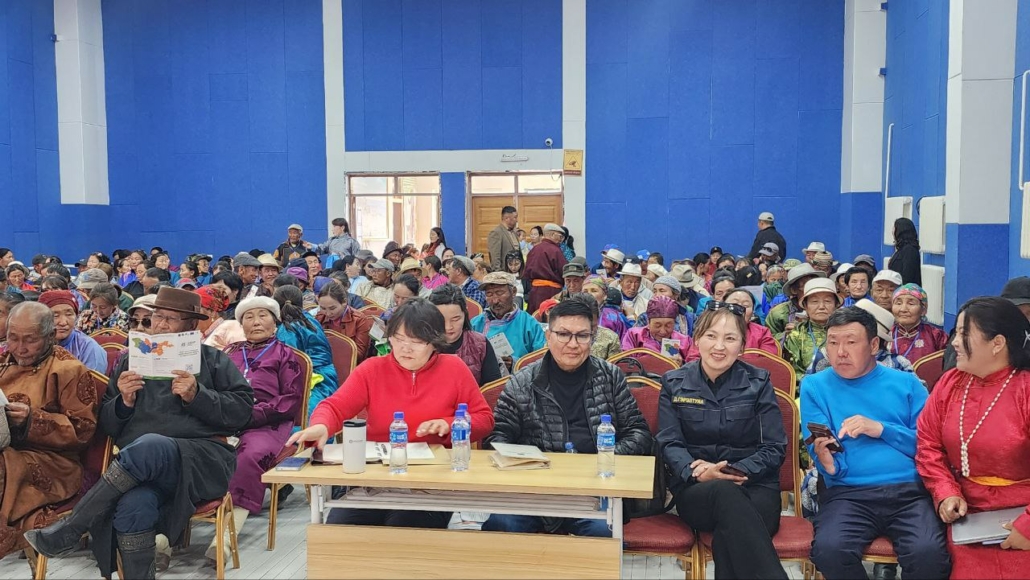
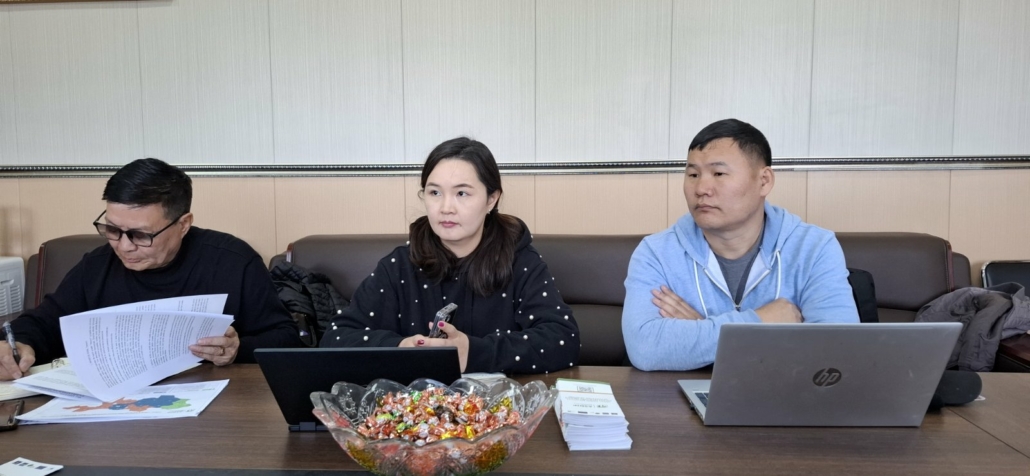
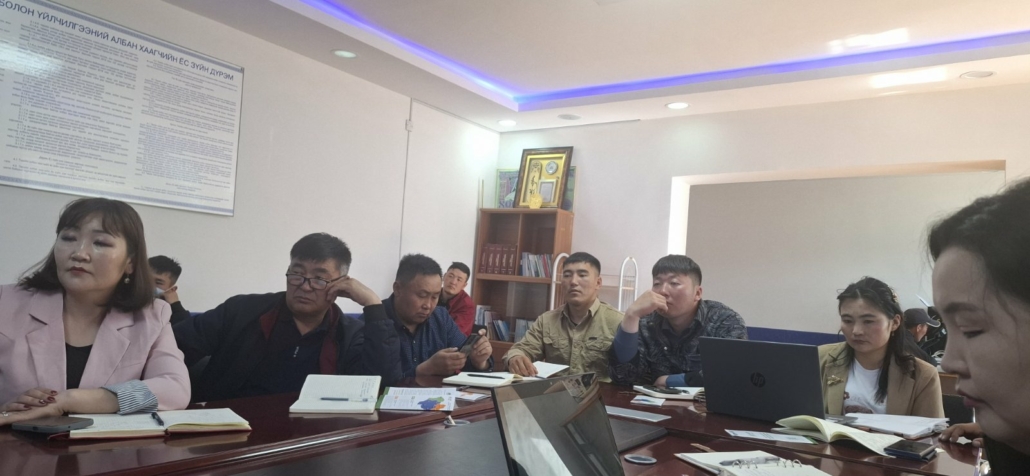
The ASDIP program aims to establish climate-resilient, low-carbon, and livable urban and rural centers that support agricultural business development and foster regional green growth. The program will contribute to the following outcomes:
Development of Livable and Climate-Resilient Centers
- Enhance soum and aimag centers to become climate-resilient and low-carbon urban areas.
- Improve infrastructure and services to attract investments in livestock value chains.
- Implement integrated solutions including affordable housing, centralized heating, flood protection and drainage, energy, roads, public facilities, waste management, wastewater treatment, and water supply.
- Support green innovations such as energy-efficient housing, renewable energy use, advanced waste recycling, and wastewater treatment technologies.
Sustainable Pasture Management to Support Traditional Livelihoods
- Develop climate-adapted agribusiness models tailored to local conditions and strengthen cooperatives and SMEs.
- Build the capacity of pasture user groups, assess and rehabilitate pastureland, and implement sustainable land use incentives, alongside carbon monitoring (MRV) systems.
- Improve veterinary services, promote breeding programs, and strengthen traceability and marketing of livestock products.
- Support water infrastructure such as irrigation systems and reservoirs suited to mountainous regions, along with training in agro-technologies and sustainable feed production.
Establishment of Climate-Smart Livestock Value Chains
- Facilitate access to finance for low-carbon, climate-resilient livestock production.
- Establish a regional green and inclusive agricultural business fund to address financing challenges for rural SMEs.
- Promote flexible credit systems with tailored repayment terms and grace periods.
- Introduce credit guarantee mechanisms to reduce collateral requirements and financial risks.
- Provide innovation grants to support the development of green products, processing, and business models in agriculture.

